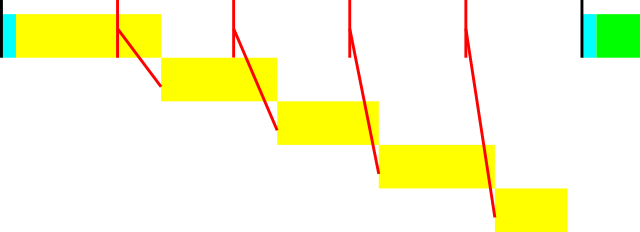Overclocking
This page is a draft :)
The principle of overclocking is to make electronic chips (not only CPUs) run at a clock frequency higher than usual.
Why overclock ?
Fanatics may not want to read this, but the NeoGeo can have slowdowns. Games known for lagging are:
As the GPU runs in real time and has no frame buffer, slowdowns on most 2D consoles are CPU slowdowns. This means that they are caused by long calculations and not graphical complexity (we're not talking about polygons !). For example: 20 animated sprites could cause slowdowns, but 300 static sprites won't.
Slowdowns
Slowdowns are perceived during gameplay as slow picture updates (frameskip), this is only caused by the CPU not being able to update VRAM often enough to animate sprites smoothly.
If a game wants to run at a constant 60 FPS (no frameskip), the calculations for a frame need to last less than 1/60 = 16.7ms. For 30 FPS (1/2 frameskip), they need to last less than 1/30 = 33.3ms.
If calculations are too long and "overflow" to the next frame, it will be skipped. For example, if calculations last 16.8ms, a whole frame will be skipped (16.7ms) because the CPU was 0.1ms late.
In the following graphs:
- The vertical lines are frame ticks given by the GPU, they always occur every 16.7ms (60Hz)
- Black lines are updated frames (different from the last one)
- Red lines are skipped frames (same as the last one)
- Cyan areas are the vblank periods, during which the CPU updates VRAM
- Green zones are CPU calculations not causing frameskip
- Yellow zones are CPU calculations causing unwanted frameskip
60 FPS engine
No slowdown
If CPU calculations are always shorter than 16.7ms, each and every frame is updated.
Slowdowns
If CPU calculations are longer than 16.7ms, the next frame is skipped. Multiple consecutive frames can be skipped (see Perceived slowdown).
30 FPS engine
The game's engine voluntarily updates one frame out of two, making the game run at 30 FPS at best. Note that the GPU always runs at 60.
Has the advantage of giving a more consistent framerate if the game tends to often exceed the 16.7ms limit, at the expense of more pronounced slowdown if it occurs.
No slowdown
If CPU calculations are always shorter than 33.3ms, one frame out of two is updated.
Slowdowns
If CPU calculations are longer than 33.3ms, one or two frames are skipped. Multiple groups of frames can be skipped (see Perceived slowdown).
Some game engines might be smart enough to "resync" and skip only one frame if they detect one was already accidentally skipped (doesn't rely on the LSB of a frame counter).
Perceived slowdown
Skipping one or two frames from time to time isn't often seen or felt by the player. The worst slowdowns are when the video practilly stalls for fractions of a second.
Perception of slowdowns depend on the spreading of updates:
- #-#-#-#-#-#-#-#- is 30 FPS, acceptable.
- ########-------- is also 30 FPS, but very bothering.
Crappy engines
Are there game engines stupid enough to try catching up on each and every frame, instead of skipping some ? Poor CPU, poor player :(
Overclocking which chip ?
Overclocking the 68k makes it execute instructions faster.
Overclocking the Z80 is completly useless, as it only takes care of music.
Multiple forum discussions (links ?).
The stock 68000-12 can often work up to 14MHz (16% overclock) without crashing, but don't expect going above safely. Crashes are due to gate delays ? Crippling ?
Some in the Atari or Amiga community know that the high-end 68000-16 can work way beyond 16MHz. Reports of steady operation at 30MHz (150% overclock) can be found.
24MHz (100% overclock) seems safe for all memory access ?
Video glitches
When increasing the CPU clock over only 13.5MHz, some games start exhibiting video glitches. This is because they alreayd have tight write timings to the GPU.
The problem arises from the fact that the CPU talks to the GPU faster, but the GPU still runs at 12MHz. This makes it skip writes or reads, making a mess in VRAM.
So why not overclock the GPU also ?
Simply because the GPU generates the video signal. If it is overclocked, the framerate will rise accordingly. This will not only make the snake bite its own tail, but also make the video signal go out of range for most TVs and monitors (14MHz would give 69Hz).
That's why the most popular mods describe a way to switch between 12Mhz and 14MHz+ manually.
How about 120Hz TVs ? Do they have 120Hz analog inputs ?
Gearbox mod
To do :)





